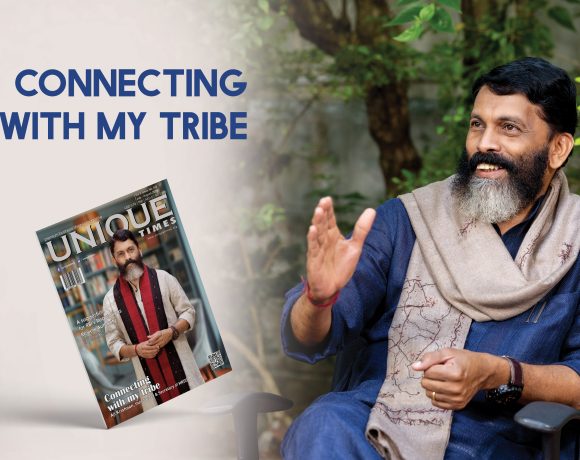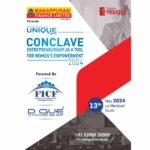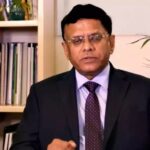Managing a ‘Legal’ business – Kuriakose Varghese

Legal profession is one of the toughest professions. It is very hard to achieve success in this profession, as it demands serious hard work and commitment.
In this edition, we introduce you a ‘Stephanian’ who made enviable gains through this unfriendly profession.
An alumnus of University of London, Kuriakose Varghese is the Managing Partner of one of the leading law firms.
The story of this man’s success and hard work will not only inspire several confused students to take up the challenging career of law to conquer their dreams, but also inject confidence into the hearts of young lawyers who are still sceptical about their future as lawyers.
This brilliant man teaches us ‘everything is conquerable if one has the will and patience’. Let’s make a look at this legend’s educational path, life, professional career and views.
- How did you enter the challenging profession of law? What was your motivation to enter this career path? Say few words about the academic path you followed
The profession of law actually chose me through a series of events. After my BA (Honours) in History in 1999, I was considering joining NDTV as I had worked with them briefly for ‘Question Time India’ (BBC’s first venture in India) and in their election team. Electronic media was in a very nascent stage and was full of opportunities. It was at this point in time that I also filled up an application form for the three year LLB course at the ‘Faculty of Law’ in Delhi University. I took the written entrance examination and was happy when I cleared it. The Faculty of Law had an exceptionally brilliant faculty -the famous constitutional expert and writer M P Singh was our constitutional law teacher and we had legendary professors like BB Pande (for Criminal Law), Kamala Shankaran (for Administrative law), Moolchand Sharma (for International Comparative Law). A few years before that Delhi University faculty also had legends like Prof. NR Madhava Menon and UpendraBaxi. I was, however, not that lucky to be trained by them. It was an intellectually invigorating period. Thanks to Prof. MP Singh. We used to have regular lectures from jurists of eminence. I once remember sitting on the floor right within three feet of Granville Austin whose treatises on the Indian Constitution remain unsurpassed. We were encouraged to ask questions. As an intern, I had an opportunity to work with a legal NGO under Senior Advocate Rajeev Dhavan. Straight after passing out from LLB, I joined the Chambers of the Central Government Standing Counsel in the Hon’ble High Court of Delhi. The motivation when I joined the practice of law was the desire to have a professional degree. But, when I look back now after about 15-16 years, I am not able to identify one single factor -there were many factors.
- How the St. Stephen’s College influenced your personality and career?
I went to Air Force Bal Bharti School on Lodhi Road for my plus two, as I really wanted to pursue liberal arts. In 1994, not many Schools in Kerala offered liberal arts and humanities. So, I ended up in Delhi in 1994 just as our country was entering the phase of liberalization. As I was one of the toppers from my school, I cleared the cut off for St. Stephen’s College, University of Delhi. My interview was tough as one had to face the famous Principal Dr. Anil Wilson, Prof. Tanika Sarkar and Prof. Wanchoo during the interviews. St. Stephen’s College was an excellent experience, as we had students from all over the country -and from all walks of life. We had various societies in the college ranging from the hundred-year-old Social Service League to the Photographic Society. Each student could hone his talent and skill outside of the rigid academic syllabi. Prof. Baker and Prof. Upinder Singh (daughter of former Prime Minister Manmohan Singh) were our faculty. They distinguished themselves by their simplicity and by their sincerity. In my third and final year, I stood for the collage elections and became the president of the Students Union in the year 1999. It was a matter of great pride as previously Shashi Tharoor was the other President of malayali origin. I owe a deep debt of gratitude to my alma mater for the valuable peers, the teachers (who could have chosen any career path) but chose to teach and shape a nation. It is to the selfless service and advice of my teachers that I owe my most sincere thanks. In my career, my friends, alumni and teachers have been my greatest well-wishers.
Really, it was a long journey.
- Has an LLM from the University of London been helpful?
Undoubtedly, the LLM from London has been an excellent addition. The curriculum in the University of London is built more on an analytical approach and the collegiate LLM had almost 150 subjects to choose from. The students were expected to read from a very elaborate bibliography for each subject. Yet again, I was lucky to have an excellent faculty including Prof. Muchlinski. My majors were Foreign Direct Investment in Emerging Economies (taught by Prof. George Walker and Prof. Maria Losa) and Multinational Enterprises and the Law. It is during my LLM in London that I also met my life partner.
- Has the KMNP LAW firm crossed the point you expected it would when you launched it? How difficult it is to manage a law firm?
KMNP Law came into existence in 2013. I was a junior associate in the Chambers of Krishnan Venugopal. He was again a Harvard law graduate and a brilliant teacher. When you presented a draft to him, you had to make sure that every colon, semi-colon and comma was in place. We used to work from 9:30 am in the morning till about 2 am, especially as we also handled the matters for the Government of India at the Dispute Settlement Body at Geneva. There were some matters in which KK Venugopal sir was also briefed and such matters were a great learning experience. My best memory about those years was the ‘vishukaineetom’ that we would get from KK Venugopal sir. It always felt special to be reminded of one’s cultural roots outside Kerala.
KMNP Law was formed actually out of the Chambers of KK Venugopal sir and Krishnan Venugopal sir. Let me elaborate that further -Adv. AbirPhukan and myself are from the Chambers of Senior Advocate Krishnan Venugopal whereas Adv V. Shyamohan (former Standing Counsel, State of Kerala in the Supreme Court) is from the Chambers of KK Venugopal. Our fourth founder partner Dr. Mathew Kuzhalnadan is a doctorate from the prestigious Jawaharlal Nehru University, New Delhi. As a law firm, we are very young. We have two offices in Safdarjung Enclave one is a basement from where we started in 2010 as Kuriakose Varghese and Associates and a new First Floor office which was opened in 2017. We have two corporate law partners -Barrister Nitin Ahluwalia based in New Delhi. He is qualified to practice in Hong Kong as well. He read law at Cardiff University, UK. Our Bangalore office focuses on corporate law and is headed by Renu Gopalakrishnan. Renu is also a Stephanian and has done her law from the Faculty of Law, University of Delhi. She has a wide experience in corporate law and has handled matters involving multiple jurisdictions. We have an associate office in Singapore through the offices of Barrister Niru Pillai. Barrister Niru Pillai is like our guru and mentor and is qualified to practice in multiple jurisdictions including Singapore, Malaysia, UK, Australia and others.
We now have a clientele which includes an international airline, several mining companies, one of India’s largest steel companies, two very large international hotel chains, one of the world’s wealthiest temples, one of India’s largest spiritual organizations with followers across the world and several other dynamic companies and start-ups. In the Hon’ble Supreme Court of India, the KMNP Law has been associated with the Coal De-Allocation Scam case, Call drop case, GM Crops, Tiger Conservation etc. Apart from that, we are also empanelled by the Department of Commerce, Government of India for anti-dumping matters. We have also recently provided legal research for a multilateral lending agency based in Washington DC and also provided a crucial advice for one of the state governments on FDI at the behest of one of the oldest consultancies in the world.
Though as Managing Partner at times it is challenging; every decision of our is based on consensus of each and every Partner. We have also been gifted with exceptionally talented junior associates one of whom is also a commercial pilot. They raise the intellectual bar to a very high level and creates an atmosphere which is growth enhancing and balanced. We now have a team of about thirty people which includes about twenty lawyers. Our vision is to grow into a successful law Firm, with some of the best lawyers with a pan India presence -contributing to the growth of the bar and the country.
- For the first time in the history of the Supreme Court, four judges met media personals on 12 January, 2018, to express their concerns about the functioning of the top court. Do you think that Indian democracy is in danger? Do you think that the Indian judicial system must undergo a reformation? What will be the one big reformation you would suggest?
On the Four Learned Judges of the Hon’ble Supreme Court giving a Press Conference, I do not think it is appropriate to make any comments. The Indian democracy is definitely going through its worst phase ever, as a certain variety of hate based divisiveness has taken root. Our Indian culture is built on the ancient ethos of sanathana dharma. In fact, the Indian Constitution’s very Preamble reflects that spirit. The Indian judiciary is at the vanguard of Indian democracy and I do not think any Institution in India enjoys that kind of a reputation and goodwill amongst the common people. The Indian judiciary needs to attract high quality people on the Bench. The number of pending vacancies in judicial appointments is huge. I know for a fact that the number of cases a judge is called upon to hear and dispose in our country is unprecedented, compared to other common wealth jurisdictions. The number of judges burning midnight oil in this country is unsung and never remembered. What unfortunately gets undue attention is only the so-called sensational news. One reformation, which is already happening on a pilot basis is the marriage of law and technology. Artificial intelligence may change the way legal research is done. The second aspect is that it is high time the judiciary engages or hires or recruits an exclusive judicial management cadre distinct from the judges. An officer akin to a CEO for each High Court would free up a lot of time of the Hon’ble Judges to focus on their strength which is in the evolution and development of law -especially as the field of law is changing at a very fast pace- for example law to deal with and interpret broadcasting, data protection, space, drones, artificial intelligence etc.
- Can ASEAN emerge as a powerful political and economic union, like the European Union?
Multilateral frame works are under challenge. I was recently invited to speak at the ASEAN Conference at the United Nations Convention Centre at Bangkok. ASEAN is a powerful body which has not yet reached its full potential. However, the flavour of the season seems to be a distinct penchant for bilateral agreements and bilateral investment treaties. Though Singapore is a part of ASEAN, our trade with Singapore exploded under the aegis of the Comprehensive Economic Partnership Agreement, which is bilateral. Even in the aviation sector, only Malaysia and Singapore have been able to fully utilize a common market.
- Does India need to move forward with its liberalization policy? If yes, how far?
When the Finance Minister Manmohan SIngh unleashed liberalization in 1991, I was still drinking gold spot. There was no Pepsi and Coca Cola. The only two cars available were fiat and ambassador and for that too the booking period was too long. From Ernakulam city to Tripunithura was a trunk call, which had to be booked through the telephone exchange. My generation has witnesses tremendous changes. There are undoubtedly two sides to the coin. We, as a country, have to retain our humanitarian face, especially for the more than 65% of our population which is engaged in agriculture. The difference between the rich and the poor has widened and in cities like Delhi -a huge number of displaced people from across the North of India have been reduced to beggary.
- What are those laws of WTO, which, you think, needs to undergo amendments?
Since the start of the Doha round of Negotiations, there has been a stalemate. India especially feels vulnerable more so as agriculture in India is more subsistence based than commercial. WTO has given way to more Free Trade Agreements (FTAs) as countries negotiate with each other for more market share and reduced trade barriers. WTO is only a trade platform but it also needs to urgently tackle the issue of climate change at least to create a carbon neutral trade environment.
- What is your advice to those law aspirants who wish to follow your career path?
Law is a highly rewarding profession and also gives you deep spiritual satisfaction. But, you have to be prepared to work long hours diligently and sincerely. The perception of law amongst the common people and the real practice of law is very different. There is also a certain disconnect between law as theory (in Law Schools) and law in motion (as in practice). One should also choose and find the right teacher who can be a guide and mentor in this field. The more you give to this profession -the more it gives back. That has been my experience so far.
- Say few words about your family
My wife Sunita Kaur Chima is a corporate lawyer with Credit Suisse, Sinagpore. I have a seven year old daughter Kyra Kuriakose Vyshyan and a four year old son called Ezra Kuriakose Vyshyan. My father has a catering company which is known as Vee Kay Vee’s. My mother Susheela retired from the revenue department. I have two younger brothers. Chacko is in Stern Business School in New York University (NYU). My youngest brother was working with the UN Asia Pacific Commission -he is currently in Harvard University on a full scholarship.













